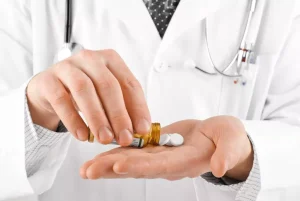Making Amends in Recovery: Relationships After Rehab

Living amends is a third option for those in the ninth step of recovery. With this option, the individual in recovery takes steps to improve their relationships and demonstrate their lifestyle change. They may visit family members and friends more often, set aside time to spend with their partner or donate their time to a worthy cause. Yet, to be truly successful at forgiving and releasing past wrongs, you need to go directly to the individual you’ve hurt. When you go directly to the person, real spiritual transformation is more likely to occur. Before approaching Step 9, you need to complete the inventory in Step 8.
Where Do You Start with Step 9 AA?
- While I did these things in active addiction, that does not take away from how wrong they were, and the pain and sense of betrayal you must have felt as a result of my actions.
- Making amends, however, can help repair strained relationships while also reinforcing recovery.
- We can go to them directly and work through it (or at least try).
There is not one standard way to go about making amends and repairing a connection with someone, especially after years of substance abuse. When you feel ready, take time to think about each person and the extent of the damage done. This will guide you in determining the best type of amends to begin rebuilding trust with those you have harmed.

Recovery Coaching
They miss the opportunity to be truly reflective about how your wrongdoings have impacted the other person and can be misread. The other person may hear the same statement as exasperation with them or a minimizing of the ways you’ve hurt them. Instead, try to reference specific times when you hurt the other person and/or let them down.
Making Amends: A Crucial Part of the 12 Steps
Instead, as you pursue a life in recovery, focus on being generous with your time and giving back to others. In this way, you can take the focus off of yourself and choose to live a life of greater meaning. It’s much easier to just apologize and move https://ecosoberhouse.com/ on, but committing to living your life differently looks different. Making these types of life improvements typically requires that you work with a counselor or therapist who can provide an outsider’s perspective and objective view of your life.
Join our Mailing List
Step 8 is a challenging list to write because this process requires you to hold yourself accountable for your mistakes. You can’t blame your addiction-related behaviors on stress, a quick temper, or mere impulsiveness. You must acknowledge that you chose to act in a way that caused harm to others. If you’re what is a living amends participating in Alcoholics Anonymous (AA) or a similar 12-Step program, you’ve probably heard that making amends is an important part of your recovery journey. For the amends process to be successful, you first need to focus on healing yourself, and then be willing to forgive yourself and others.


It’s also important to have a plan and be prepared for different possible reactions, with guidance from a sponsor and support group of some kind. We must refrain from deflecting responsibility onto others or justifying one’s harmful actions while expressing remorse, or it discounts the whole activity. Often, in our experience, when you get stuck in the amends process, it is due to getting inside your head, and imagining outcomes or otherwise succumbing to doubt. She made the brave decision to put her shame to one side and make her amends. Making amends does not necessarily depend on your ability to connect with a person or how they respond to you. I am not proud of that, but it is the reality of how I used to behave.

- Your donation will provide a scholarship to someone in recovery, supporting them through the first few months of sober living in one of our partner organizations.
- In particular, he discusses how to heal when the person we need to make amends with is no longer living.
- The different types of amends are direct, indirect, and living.
- Admitting the wrongdoing is the initial step in developing your amends script.

